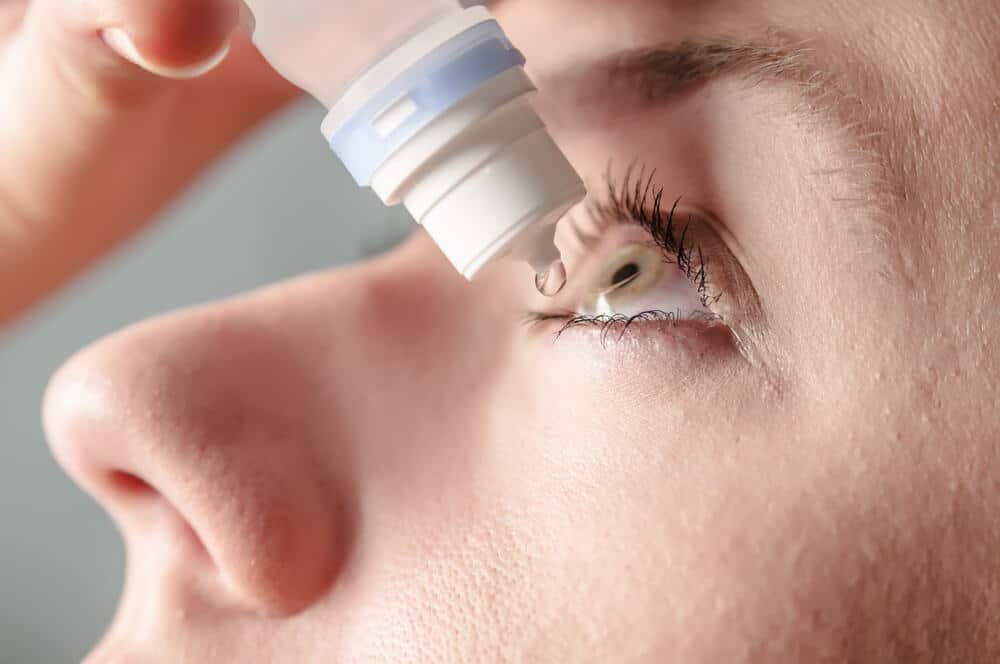Glaucoma is one of the leading causes of blindness throughout the world, especially in older people, with estimates of suspected cases at over 60 million worldwide.
What is Glaucoma?

Glaucoma is an eye condition where the optic nerve, which connects your eye to your brain, becomes damaged, usually as a result of an increased pressure to the eye. It usually occurs when the fluid in the eye can’t drain properly, which increases the pressure and this in turn, puts pressure on the optic nerve. It’s often unclear why this happens, although there are certain factors that can increase the risk.
Different Types of Glaucoma
There are two main types of glaucoma, open angle and closed angle glaucoma:
Open Angle Glaucoma
This type of glaucoma progresses very slowly. You might not even know you have it, as there’s often very little symptoms and even slight eye loss of vision may go unnoticed.
Closed Angle Glaucoma
Closed angle glaucoma can come on suddenly, and you may experience pain and a rapid loss of vision. Fortunately, the pain often results in prompt treatment which usually prevents and permanent damage from occurring.
What Are The Risks of Developing Glaucoma?

The following factors can increase your risk of developing glaucoma:
- Age – Glaucoma becomes more likely as you get older; the most common type (primary open angle glaucoma) affects up to 2 in 100 people over 40 and around 10 in 100 people over 75.
- Ethnic background – African, Afro-Caribbean and Asian origins are at increased risk of developing certain types of glaucoma
- Family history – If a close relative has glaucoma, you’re at higher risk of developing it.
- Medical conditions – Conditions such as short-sightedness, long-sightedness and diabetes can also increase your risk of glaucoma.
What are the symptoms of glaucoma?
Open angle glaucoma is hard to detect as there are hardly any symptoms. In fact, vision is often maintained well until late in the disease and by this time, the disease is usually quite advanced and the glaucoma becomes irreversible.

As open-angle glaucoma has few warning signs or symptoms before damage has occurred, it’s important to see a doctor for regular eye examinations. If glaucoma is detected during an eye exam, your eye doctor can prescribe a preventative treatment to help protect your vision. On the other hand, symptoms of closed angle glaucoma are often very noticeable. This includes:
- Misty or blurred vision
- Rainbow coloured circles around bright lights
- Nausea
- Severe eye and head pain
- Narrowing of vision
- Sudden loss of sight
Symptoms of acute angle-closure glaucoma are very noticeable and damage occurs quickly. If you experience any of these symptoms, seek immediate care from your eye doctor.
Glaucoma Treatment Options

There are several different treatments of glaucoma, including eye drops, laser treatment and surgery. Your treatment will largely depend on which type of glaucoma you have.
Open angle glaucoma is usually treated with eye drops, or laser surgery if drops don’t help, whereas closed angle glaucoma often needs immediate treatment at the hospital, along with medication to reduce the pressure in the eye. Most people with glaucoma won’t go blind if they follow their treatment and have regular eye exams.
To find out more about the leading causes of blindness, check out our latest interactive graphic on the principle causes of blindness worldwide.
Ready To See Clearly?
Focus has a 100% 20/20 vision success rate for all common short-sighted prescriptions using it’s A-LASIK technique.

